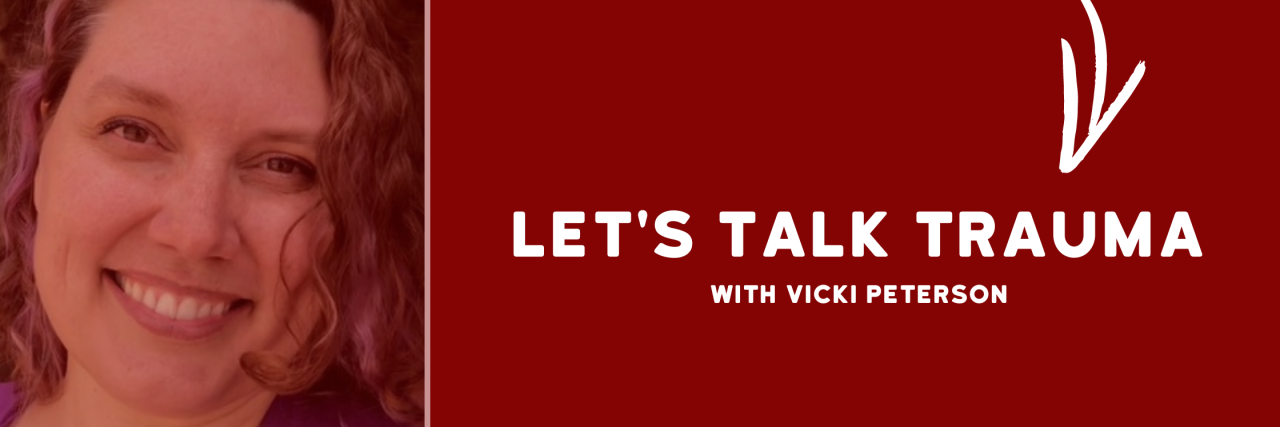Let's Talk Trauma: Why Do Some People Doubt Their Own Experience of Childhood Trauma?
Editor's Note
If you’ve experienced sexual abuse or assault, the following post could be potentially triggering. You can contact The National Sexual Assault Telephone Hotline at 1-800-656-4673.
Even though I could remember many aspects of my own childhood sexual abuse, there were some memories I couldn’t access for a long time. Because I felt I couldn’t objectively “prove” it in a court of law, and because my abusers denied it, I doubted my own memories. Then, after years of trauma recovery, I “remembered” some of the most traumatic details of the abuse. It wasn’t so much that I had completely forgotten them, it was more like I refused to let myself “go there” for so long that it got locked away in my subconscious mind. It was at a time in life where I had already processed so much about my childhood and knew the logical facts about the abuse. It felt as if my brain waited to release the worst information until I was emotionally ready to process it.
It’s common for children to remember a traumatic event in fragments, but not have an entire scene pieced together in its complete form. Perhaps a memory sparks from a certain smell, or a particular feeling. Perhaps it’s not a memory of the specific trauma, but an object in the room where it happened, or the type of carpet, or the color of the wallpaper. Perhaps the memory is in word form, like “bad man” but there isn’t a picture to go with it. Perhaps it’s a snapshot image, but the words to describe it can’t form. Sometimes childhood trauma can feel like it happened to another person, like the child watched it happen from outside their own body. Perhaps there is a disconnect between knowing it happened and feeling so terrified or ashamed to admit it happened, that they adamantly deny it, even to themselves.
On top of these fragmented experiences, abused children are almost always gaslit by their abusers. If they try to speak up about the event, they are often told they are “overreacting,” or “that didn’t happen” or “they got it all wrong.” Abused children are trained to doubt their own experience, or to fear the consequences of speaking up so much that they convince themselves of the abuser’s falsehoods. The instinct for survival is so strong, some people go their entire lives convinced an abusive parent was “a good person,” and “meant well,” even though a lifetime of evidence shows that they weren’t and didn’t.
There are many ways the brain protects itself when experiencing trauma, from short term memory loss, to shutting off particular details of an event, or recalling some details only after a survivor establishes themselves in a lifestyle of safety and security. Because children are particularly vulnerable and dependent on their caregivers for survival, when a child experiences physical or psychological abuse from a caregiver, the brain finds a way to “survive” that abuse by shutting down its ability to process the event. It’s likely that a child who experiences abuse or neglect grows up thinking those events were “normal.” A person can spend decades with unprocessed childhood trauma, not understanding why they can’t regulate their emotions, or get triggered by certain events.
When an adult “remembers” childhood trauma that was previously cut off from conscious memory, it may also come with a flood of unprocessed fear, grief, anger and shame. It may feel like waking up from a dream only to realize they lived through a nightmare. Adult survivors of childhood trauma need extra gentleness, patience and compassion from the people around them. The emotional response that comes up in childhood trauma survivors might seem “immature” or “regressive” as if they are emotionally the same age as when the abuse took place. A therapist trained in childhood trauma will help to mirror the kind of empathetic responses needed for the survivor to feel safe enough to process the events.
Abusive childhood events are difficult to prosecute in the legal system, for several reasons. However, assumptions that children are lying, exaggerating, or creating a false memory of their experience are almost always unfounded. Studies have shown that in cases of childhood sexual abuse, 97% of the children involved were telling the truth. However, due to the incomplete nature of traumatic memories, the experience becomes difficult to prove in court, and the defense may conflate incomplete memories to insert doubt. Additionally, so much time may pass between the abusive event and the full understanding of the abuse that it exceeds the statute of limitations.
If you suspect you were abused as a child, chances are you are right. It’s important to work with therapists trained in trauma recovery even if you suspect but can’t “prove” your abuse. Perhaps the abuser “didn’t mean it,” or “it didn’t happen that often,” but that does not minimize or negate the experience and impact on your development. Sometimes, it’s the adults who minimize, question, and doubt their childhood experiences the most that end up uncovering vast amounts of trauma later in life. Acknowledging that trauma as valid is often the first step on a long but ultimately liberating journey of recovery.
Lead image via Super Contributor submission.

